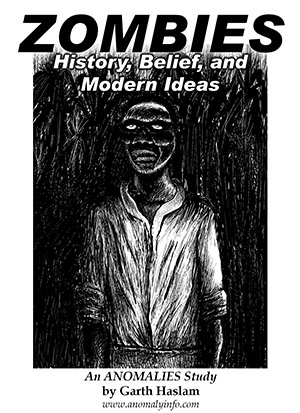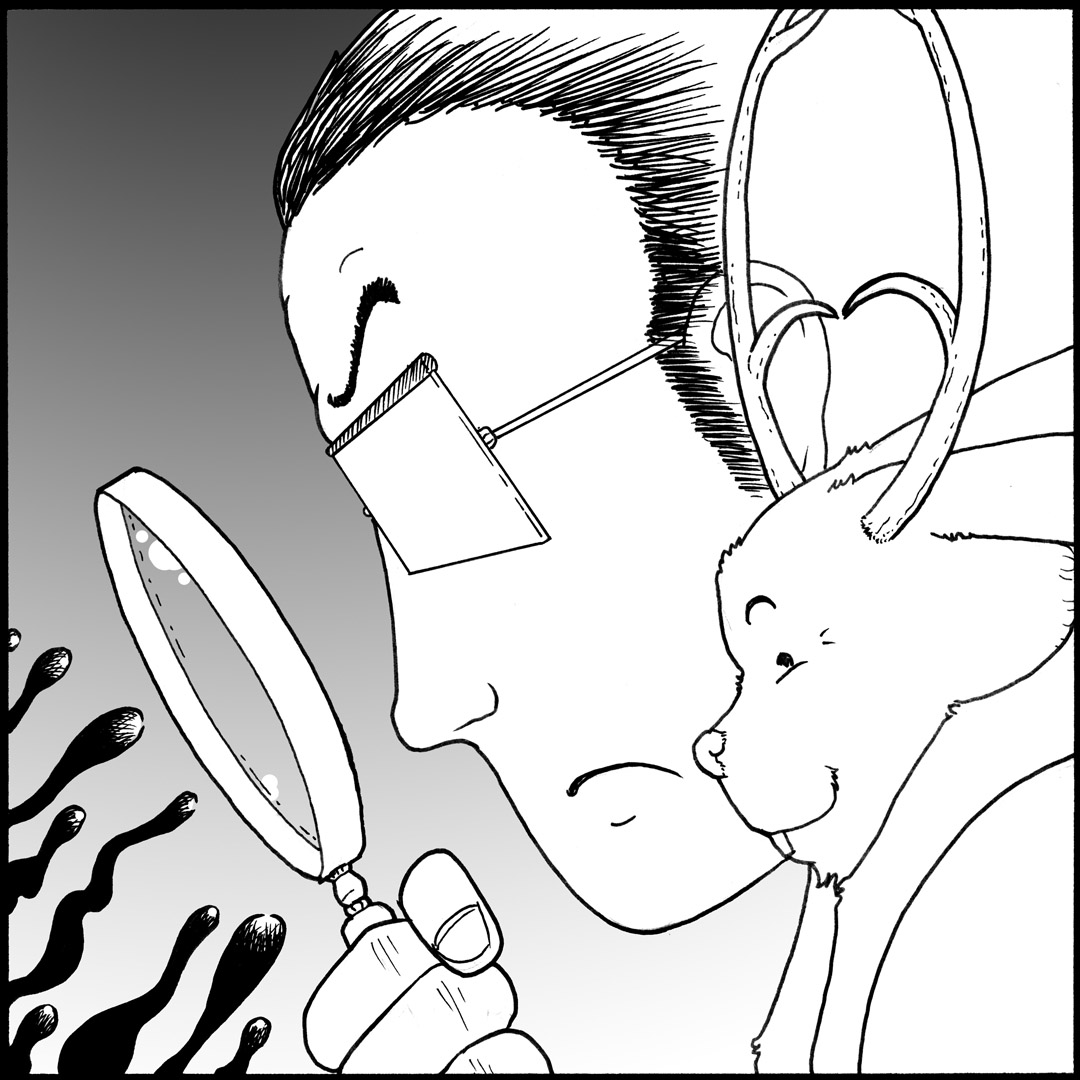End of the World Predictions: 1 CE/AD to 1499 CE/AD
This is the chronological list of End of the World predictions. Note that, in the list, if the predictor gave no particular details about how they thought the world would end, I simply listed the Nature of End as "End of the World". I hope that's pretty clear... and now, the list.
Predictions covering 1 CE/AD through 1499 CE/AD
1 AD ~ 100 AD: Biblical Judgement Day, predicted by the New Testament
Jesus told his apostles that the Kingdom of God would come to Earth before the last of them died... Matthew 16:28, Mark 8:39, and Luke 9:27. Or, as Blake puts it: "In the early ages of the Church, the belief in the rapid approach of the end of the world was universally spread amongst Christians. The Apocalypse of St. John and the Acts of the Apostles seemed to announce its coming before that generation passed away."
395 AD: Biblical Judgement Day, predicted by Augustin, Bishop of Hippo
In the middle of the 4th century, Augustin, the Bishop of Hippo, published a book predicting the end of the world in the year 395 AD. He later revised this estimate by adding around one-hundred years to it.
992 AD: Biblical Judgement Day, predicted by Bernard of Thuringia
According to a book published in 1877, Bernard of Thuringia shared a then-common belief that the world would end around 1,000 years after the life of Jesus. He predicted his date as happening on the day about 1,000 years after when the Annunciation of the Virgin, a holy day that occurs on a different day each year, happened to coincide with the Good Friday holy day... an occurrence that came in 992 AD.
1000 AD: Second Coming, no single predictor
It was generally believed that the end of the world would occur one-thousand years after Christ, due to a belief that Satan and the hounds of Hell were trapped for that thousand years... once set loose, the end was expected to occur quickly. There was much debate, however, if the thousand years was to be calculated from the birth of Christ or his death; so, despite the extreme behaviors reported for the approach of 1000 AD, not everyone felt the end was near. It is said that many people stopped tending their farms because they felt it wasn't necessary any longer, and that this resulted in famines. It is also said that some kings and nobles gave up their states... Robert of France, son of Hugh Capet, gave up his states to enter a monastery, for example. Many nobles also decalred "God's truce" and swore to abstain from feuds with one another and to help the oppressed... so in some ways the panic was a good thing.
1033 AD: Second Coming, no single predictor
Since thousand year predictions that were based on Jesus' birth had proven incorrect by this time, it became common to expect the thousand years to be based on Jesus' death... and since it was believed that Jesus died at age 33, 1033 AD became the next expected date for the end of the world. Many books now attribute a prediction for this year to a monk named Raoul Glaber. This would be Raoul-le-Chauve, also known as Radulfus Glaber [985–1047], and his connection to this prophecy seems to be a mistake based on a claim in a science fiction novel entitled 'Omega: The Last Days of the World,' published in 1894, in which the following phrase is claimed to have been written by Glaber in 1000 AD: 'Satan will soon be unloosed, as prophecied by St. John, the thousand years having been accomplished.' I have found no proof earlier than the novel for this phrase, so it doesn't seem likely Glaber made a prediction.
1186 AD, September: Astrological Alignment, predicted by John of Toledo
In a manuscript published in 1170 AD is mentioned the fact that many astrologers, from Spain to Greece, predicted the end of the world to occur in September 1186, due in some way to a conjunction of the planets. In a book published in 1867, it was stated that another manuscript from around the time of the prediction claimed this prediction belonged to John, bishop of Toledo... and he now gets the credit in most modern collections.
1257 AD: End of the World, predicted by Guilliaume de St. Amour
While this is not a date predicted for the end of the world, this is the year that the French doctor Guilliaume de St. Amour published his book Concerning the Perils of the Latter Times, which generally predicted that the end of the world was near at hand based upon his study of St. Paul's writings about the "perilous days" in the "latter times" of the world's existence.
1260 AD: Biblical Judgement Day, predicted by Monk Joachim and the Joachites
In the early 13th century, a book of prophecies that was attributed to a monk named Joachim was very popular reading in Italy and neighboring countries. Known variously as "The Book of Joachim" or "The Everlasting Gospel," the book spoke of large coming changes predicted in the Roman church of the day, but not about the end of the world... but in the year 1250, a new book was circulated entitled "Introduction to the Everlasting Gospel," written by a member of a group then actively trying to oust the existing Pope and his cronies. It was in this volume that it was "explained" that Joachim implied in his predictions that Jesus Christ would return to Earth in 1260 AD, and that the ministers of this great and important change would be -- not surprisingly -- the same group that authored the new book. Also not surpringly, the book did not gain popular sway with the existing Roman church.
1265 AD: Biblical Judgement Day, predicted by Prester John
Prester John is a legendary -- possibly mythical -- Jewish king said to rule an unspecified paradise in Asia sometime in the 10th and 11th centuries; tales of him were commonly told throughout Europe up until the 17th century. Despite a wide variety of tales and legends, however, there is no evidence that Prester John was associated with any end of world prediction... until a book in 1982 claimed that devote Christians had considered that Prester John was a key actor in the Biblical end of times that would trigger the end of the world in the year 1265 AD. I have been unable to find any source earlier than the 1982 book for this idea; and every mention of the idea after the 1982 book can be traced back to it... so it's likely not even a real prediction.
1335 AD: Biblical Judgement Day, predicted by an unnamed Italian priest
An article from 1857 states that an Italian priest caused panic by announcing that the world would end sometime within this year.
1335 -or- 1345 AD: Biblical Judgement Day, predicted by Arnold
An article from 1857 mentions that a Spanish monk named Arnold alarmed people in 1335 or 1345 (One source mentions both dates) by declaring it was the year the world would end. It's interesting to note that 1345 is also the year that is commonly considered to be the year the Great Plague began in Europe.
1381 AD: Biblical Judgement Day, predicted by The Peasants' Revolt
In 1381, a countrywide revolt broke out across England as the peasants of the countryside demanded freedom from servitude and equal rights and privilages to all other classes in the society. The resulting mobs killed a number of lords and religious leaders and took control of many towns and cities. They were presumably led by a errant priest named John Ball (who became leader of the movement after the revolution started). The noise all quieted down after three days or so, but did long term in the end of the serf system that formally enslaved a large part of the population. What's all this to do with the end of the world, you ask? Well, in 1982, a book about end of the world predictions stated that the peasants had been encouraged to revolt by then popular ideas equating the Biblical judgement day with a day when the poor of Engalnd would take over the county... and it has been assumed that this was a prediction put foreword by John Ball ever since.
1397 AD: Biblical Judgement Day, predicted by Elias the Prophet
In the year 1397 in Italy, a group of devotees being led by a man claiming to be the prophet Elias, recently returned from paradise, to warn of the eminent destruction of the world by a great earthquake. At the hight of his popularity, the new Elias preached to crowds five-thousand strong.
1403 AD: End of the World, predicted by Vincent Farrier
In 1403, a hermit named Vincent Farrier caused alarm by declaring the end of the world was near.
1419~1433 AD: Second Coming, predicted by The Taborites
In early 1419, a radical religious sect calling themselves the Taborites demanded a complete change in the existing system of religion... in short, they wanted the Pope out, and Jesus Christ in. Many of their leaders, including a gentleman named Martin Loquis, asserted their belief that at some unspecified time soon Jesus Christ would return to the Earth and expell all heretics (which, in this case, meant non-Taborites) and then purify the church of all corruption. The Taborites as a group eventually ceased to exist, mainly because their followers joined a number of other sects over time. A number of fairly specific end of the world prediction dates have been attributed to this group, but none seem to be mentioned any earlier than one book published in 1982 called "A History of the End of the World"... so until I find more evidence, I have to consider these specific dates to be newer creations.
1456 AD: Comet Collision, Predictor Unknown
In 1456, a fear spread through Italy that a comet was soon to either crash into the Earth or suffocate it within its tail. This is the year that the custom of church bells being rung at noon daily began, as mandated by Pope Calixtus III.
Anomalies -- the Strange & Unexplained, as well as my other website -- Monsters Here & There -- are supported by patrons, people like you! All new Anomalies articles are now posted for my patrons only, along with exclusive content made just for them. You can become a patron for just $1 a month!
|







